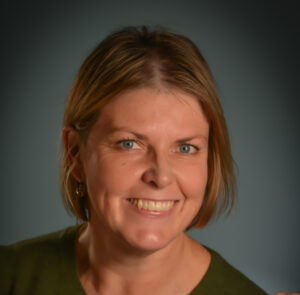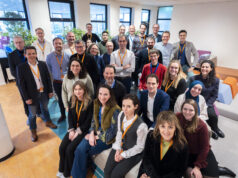
Taking place at the 2024 Cardiovascular and Interventional Radiological Society of Europe (CIRSE) annual congress (14–18 September, Lisbon, Portugal) the Women in Interventional Radiology (IR) focus session will include a brand-new forum. Taking place on Saturday afternoon, the inaugural Women in IR workshop: ‘Influencing with authenticity and assurance’ wants attendees to leave with actionable strategies to gain confidence at work. Speaking to Interventional News, Alex Barnacle (Great Ormond Street Hospital, London, UK) tells of what may be holding female interventional radiologists back, and the soft and hard skills needed to lead a room and command attention.
IN: What is the purpose of the Women in IR workshop and the new format?
The annual Women in IR session that is part of the CIRSE programme every year is always a big success, but we were keen to add something more for 2024. This year, the CIRSE meeting will include a focused workshop for mid-career female consultants in IR led by a wonderful leadership coach, Sarah Perugia. Sarah is well known to many of us in the leadership space. She brings expertise in working with diverse teams and women in leadership from around the world. Her focus is on empowering leaders to advance their careers, build confidence, enhance their performance in the workplace and ultimately to flourish and thrive.
During the two-and-a-half-hour workshop, Perugia will help participants to explore their mindset at work and reflect on how they present themselves in both clinical situations and during meetings or presentations. She will provide tips and tricks to help women gain confidence in order to lead with assurance, yet stay true to themselves. There will be opportunities for the workshop delegates to present topics to each other, discuss what might be holding them back in their career journeys and reflect on new ways to approach the challenges every single one of us face at work, male or female. By limiting this workshop to a small number of delegates and allowing plenty of time to explore these themes in depth, we hope to give participants a unique space to focus on themselves and their careers in a way that is almost never afforded them in their busy everyday lives.
This Saturday afternoon workshop will follow on very well from the morning plenary session which will focus on three different aspects of how women can be at our best in the workplace. Sarah will join a group of female interventional radiologists on stage in the morning to look at the role of mindset in shaping success in the workplace, building resilience in high-stress environments and the role of non-verbal communication.
IN: In the promotional video for the Women in IR session at CIRSE this year, Perugia explains that female body language and outward femininity makes it harder to “tell the story of power”—do you feel that femininity cannot be synonymous with power and leadership in IR?
We all know that we should be confident in being who we are and as feminine as we want to be, but it is something that many women in a male-dominated environment struggle with. Each of us need to find our own way to do it, and different people will do it in different ways. Some women are naturally more feminine in their style or their outlook than others, but it is something that I think preys on some people’s minds, especially early in a career when interventional radiologists are working to establish their credibility and figuring out how to express their professional expertise and fit in with a team.
All of this is often an unspoken thing, too. When I ask female colleagues about this, they often admit to concerns about feeling less equal than others in the workplace or about how to express themselves confidently at work without being labelled as aggressive or ‘bossy’. But there are very few forums that provide space for us to have these honest conversations or explore solutions. In the workshop, Sarah will look at all this in detail. I think it will be really valuable, because women rarely get the opportunity to deeply reflect on these things. I suspect that we often do ourselves a disservice by being uncertain in knowing how to project ourselves in the workplace and thinking we may be open to judgement. And for whatever reasons, men seem to struggle with this less often, though it is by no means a female-only problem.
IN: The sessions are geared toward mid-career interventional radiologists. Why is this and do you think early-career interventional radiologists would also benefit from this training?
We suspect that today’s mid-career consultants have probably never had any opportunities for this kind of training, it just doesn’t come up. Leadership and coaching themes are becoming more of a thing for junior doctors coming up through the ranks, and there are various mentor schemes available for younger doctors. So there are a few forums where some of these valuable conversations are taking place for our future IRs and that is wonderful. But when I was training, there was never a focus on these aspects of building a successful career. I know many women who are mid-career and who feel stuck, who wish that they could be on stage speaking at CIRSE, who wish they could be become a principal investigator on a research study, who wish that they could put themselves forward for a committee or a writing group, but just don’t feel that they have the confidence or the ability to do that.
It’s those women that I am interested in right now. CIRSE has a huge group of highly talented females who are out there doing really amazing work already, but their expertise may be under-recognised at national and regional levels because they do not put themselves forward. They remain very hesitant at taking that next step. And we see evidence of this quite often, we don’t always get a yes from women when we encourage them to step up to these roles. I know there are many, many reasons for that and some of it may well be work commitments as well as family life, but there is also a confidence issue that underlies it in many cases. We want those women to be flourishing in their careers to the best of their ability and recognised for being IR experts. So that’s what we are trying to achieve by providing these building blocks for them.
IN: You have gathered applications for the workshops, asking potential attendees what they would like to take from the forum. Can you share what some of the most common responses have been?
We had so many honest and open responses. Many attendees hope to gain a better understanding of how their body language changes how they are perceived by others and how they can express themselves with greater confidence at work. Frequently, responders reported that they feel unseen in the workplace, one woman sharing that patients often assume her to be a technician or nurse when male counterparts are in the room. Others have said that, although they are confident in their knowledge, transmitting this with confidence to colleagues and patients can be difficult, and they are concerned that this then lessens the importance of their viewpoint; this can be critical in emergency clinical scenarios. Several said they wanted to feel more self-assured when presenting and wanted to gain the confidence to push themselves forward for new roles. To address these concerns, we hope to provide the workshop attendees with constructive, actionable ways to project themselves with more self-assurance, increase their influence in the workplace and work towards building the careers they dream of.










